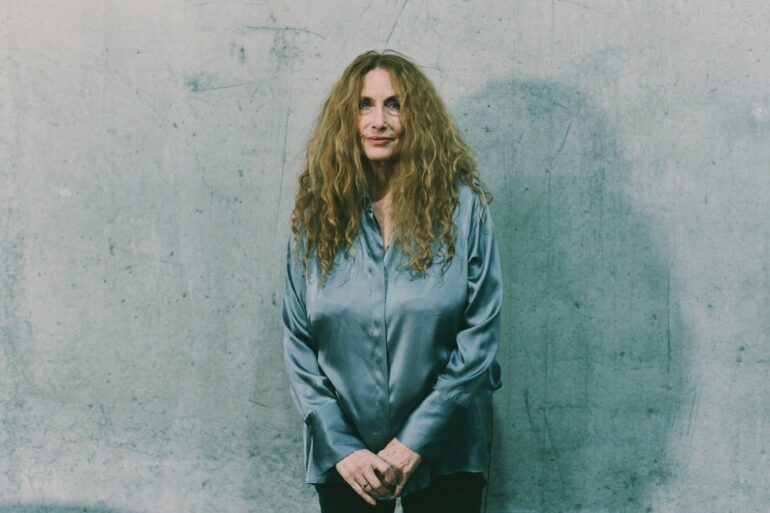Written by: Geoffrey Macnab
20.02.25
The Long Road to the Director’s Chair is based on material shot by Løkkeberg in Berlin in 1973. The questions it raises about gender bias in the media are as topical today as they were then.
The Long Road To The Director’s Chair, which premiered in the Berlinale Forum last week as opening film, has been more than 50 years in the making. Norwegian auteur Vibeke Løkkeberg, now 80, originally shot the material in 1973, at the very first International Women’s Film Seminar at the Arsenal Cinema in Berlin. This was a groundbreaking feminist event at which women in the media industries came together to talk about their lack of opportunities, the poor pay, the sexual harassment in the workplace, the way they were continually marginalised, and their ambitions for a much better future.
According to Løkkeberg, NRK wanted nothing to do with such a film at the time, because its senior management didn’t like the critical voices of the women Løkkeberg had interviewed, figures like German filmmakers Helke Sander and Claudia von Alemann, organisers of the 1973 seminar, and Women Make Movies co-founder Ariel Maria Dougherty.
Løkkeberg’s footage ended up in the archives of Norway’s National Library. She went on to other projects instead. Since then, she has directed several films feted internationally, among them The Story Of Camilla (Løperjenten), selected for the Critics Week in Cannes in 1981, crime drama Hud, which screened in Un Certain Regard in Cannes in 1987, and polemical doc Tears Of Gaza (Gazas tårer, 2010).
Then, in 2019, the footage was rediscovered. “It was not easy to find the sound, and they were working on it for two years before we finally started editing,” Løkkeberg remembers. For her, this was a case of unfinished business. At last, she was able to complete the film. With the assistance of heavyweight producer Anders Tangen, whose TV credits include Netflix hits like Lilyhammer and Norsemen (Vikingane), she secured funding from the Norwegian Film Institute and the Fritt Ord Foundation.
The film will now spawn a follow-up TV series, also produced by Tangen, featuring several hours of the archival footage that didn’t make it into the final cut of the film.
Speaking from the Soho House in Berlin, the still fiery Løkkeberg explained why the film she shot 52 years ago is still as relevant as ever today.
How was the experience being back in Berlin for the Forum screening?
The premiere was fantastic. A lot of women. They recognise that this is the truth, what we were talking about.
In your opinion: Why was the film not supported in 1973?
Imagine the time in 1973. We didn’t have abortion. We had just got the pill. We had had an uprising after 1968. This was the start of the feminist movement, you could say. When they [the broadcasters] saw it, they immediately refused to buy anything. I didn’t get any money or funding anywhere.
How straightforward was it to get the film funded after the footage was rediscovered?
To begin with, I didn’t have any funding, but when finally they watched it at the Norwegian Film Institute, they were very keen to give me money.
The women in the film have all had successful careers in the media?
As individuals, yes, We left each other, went into our careers. But these are struggling women who didn’t earn the money they should have earned, and they have sacrificed a lot. Each film I made, I produced myself. Each time I have to invest my own salary in the film. You never get up and earn money so you can have a solid pension. These women that you see here [in the documentary], they are still poor. I really admire them.
What kind of debate do you hope the film will provoke, and what will happen to it now?
I have heard many festivals want it. We also want very much to screen it in the States, where abortion is [again] illegal and women are getting jailed. I have also restored my short film Abort (1971), which will be included in this series we are making. I hope for discussion which will help women understand their voice. This can have a powerful effect, but they have to find channels [for it to be heard]. This way of making films is maybe a way to do it. We have to bring the funds and all the bureaucrats down to our level, try to make them understand that we must be part of the political system, and we must be given the right to speak. We are 50% of the people in the world, and we shouldn’t be silent.
